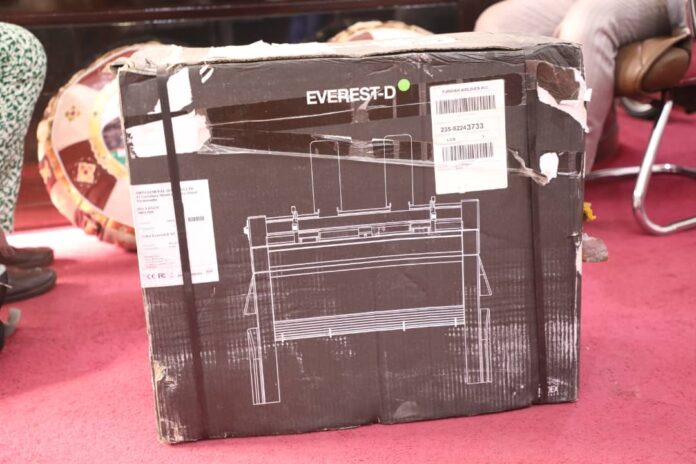National Commission for Persons with Disabilities (NCPWD) has received a delegation from the Federal University of Lafia, led by Professor Adaka Ahon, in a strategic engagement aimed at deepening collaboration on tertiary education of Persons with Disabilities in Nigeria, by donating emborser machine to the institution.
The device will be used for the purpose of ensuring accessibility of information for members of the University with visual impairment and if course for instructional purposes
During the presentation of the emborser machine, the Executive Secretary, Hon. Ayuba Burki Gufwan, stressed the need and importance of the machine in enhancing the learning process of Persons With Disability in the school.
“I hope that this emborser will go a long way in helping both the lecturers and the students in communicating with the blind. The simplicity of this machine is, it doesn’t require expertise, the moment you can type with a computer, you can print out in braille format and we consider this as a very necessary assistive devices that can help in enhancing education of Persons with Disabilities (PWDs),” said Gufwan .
Gufwan commended the recent policies of the university as one of its kinds which has now become a role model to other universities across Nigeria.
Also, Gufwan used the opportunity to thank the Vice Chancellor, Prof. Shehu Abdullahi Rahman, for subsidising tuition fees for the PWDs who are willing to study at Federal University, Lafia.
In his response, Rahman, who was represented by Prof. Adaka Ahon, thanked the commission for the show of love and donation of emborser machine, citing the high cost of the machine in the market.
“We are delighted to have gotten this from the commission. Before now, we only hear and see numerous numbers of assistive devices the commission has gifted to individuals and organisations. This machine will not only help in enhancing communication but will also aid accreditation of some courses at the university,” said Rahman.
The engagement was concluded with a shared commitment to deepen collaboration in policy development, institutional strengthening, and access to free education by the PWDs.

